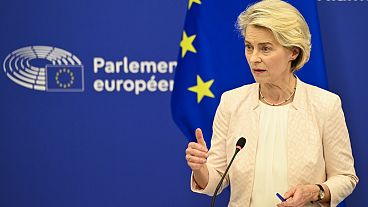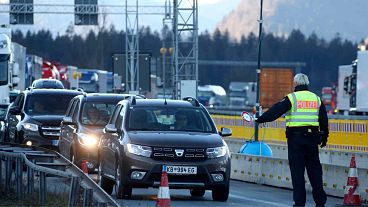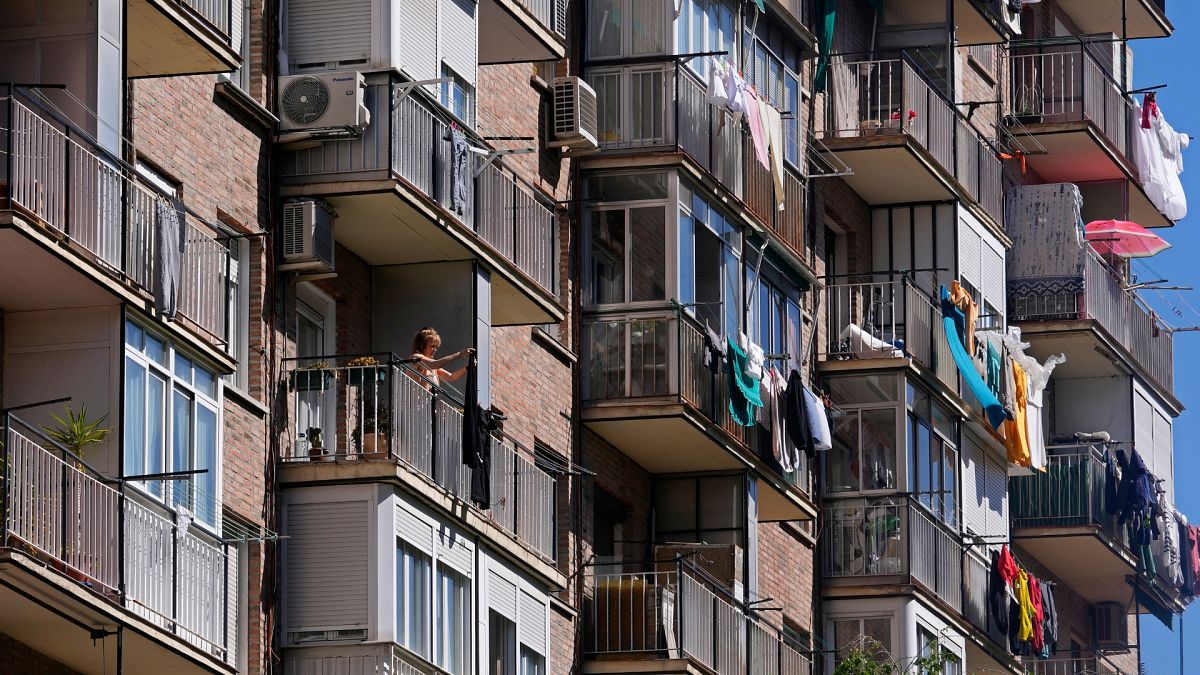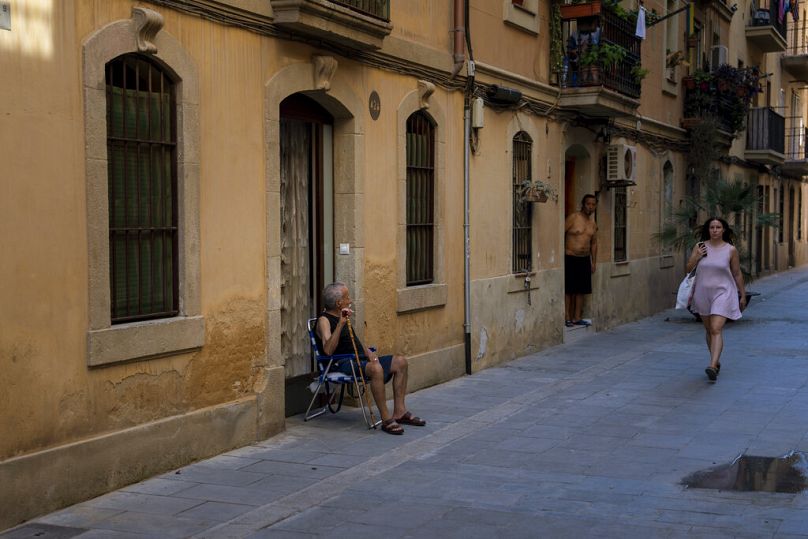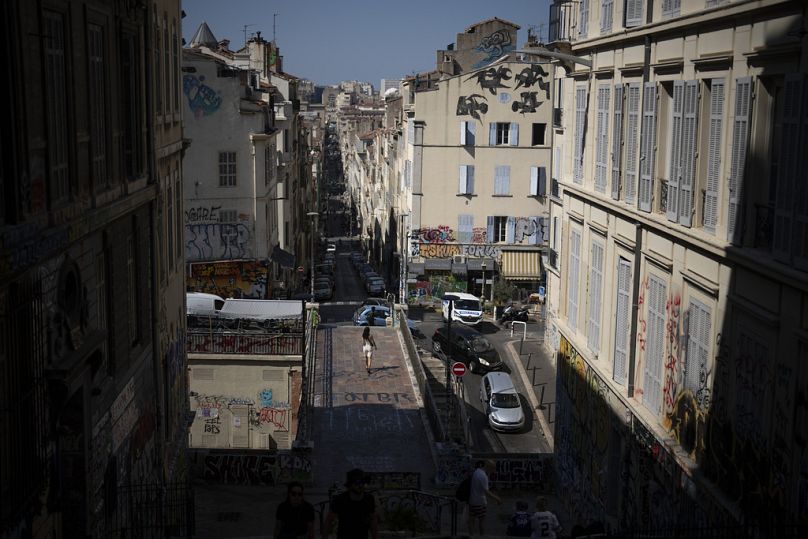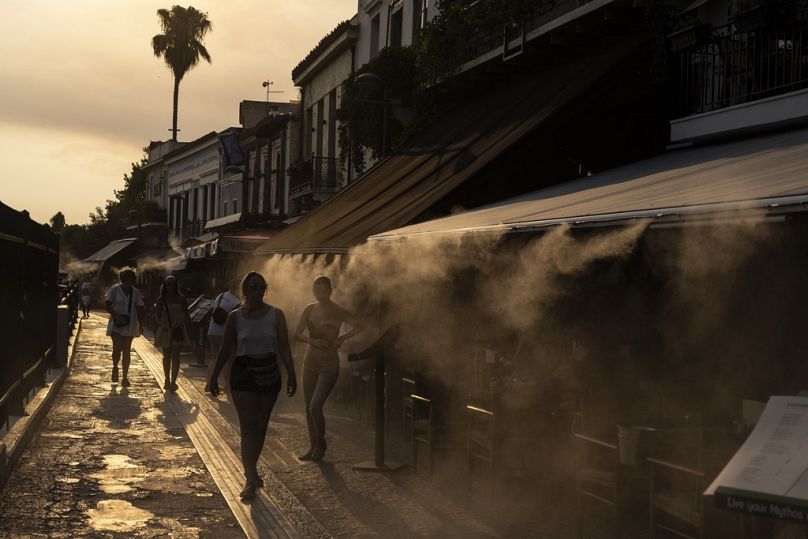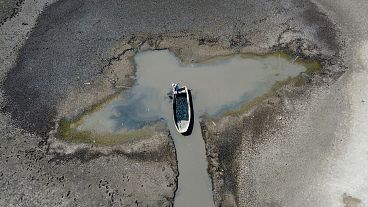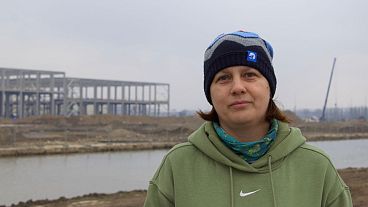A significant proportion of European homes are very difficult to keep cool in summer due to the way they are designed.
Each winter, millions of Europeans struggle to keep their homes warm in freezing temperatures as electricity bills soar.
But a different kind of energy poverty is now on the rise as our warming world brings record temperatures across the continent year after year. Many are struggling to keep their homes cool amidst extreme heat - and climate change is only set to make this problem worse.
Europe is the fastest warming continent on the planet with temperatures rising at around twice the global average. Experts predict that the number of Europeans exposed to extreme heat will increase from 10 million to 100 million by 2100.
The World Health Organisation (WHO) recommends staying out of the heat and keeping your home cool in the face of high temperatures. For a significant proportion of people in Europe, the latter isn’t possible.
Up to 19 per cent of European households are not comfortably cool in summer, according to data from Eurostat. Poor insulation, a lack of ventilation, no protection from the sun and sparse air conditioning options are leaving millions exposed to potentially dangerous heat.
‘Each summer is hotter and for a longer period of time’
Lisbon-based climate NGO Zero Portugal recently put out a call asking households if they suffer thermal discomfort in their homes in both winter and summer.
Out of the 315 respondents, almost 55 per cent said they struggle all year round when it comes to adequately heating and cooling their homes.
“The lack of insulation makes the house very cold in winter and heat up easily in summer,” one respondent said. "We weren't able to renew the windows in time, which really need it as they let in the cold and insulate poorly, and to invest in some type of external thermal insulation."
Another said they had bought a house with leaks and poor thermal insulation.
“Electricity and gas are becoming more expensive. During the summer I have to keep the shutters closed almost all day to keep the heat out,” they added.
Over the border in Spain, the situation isn’t much better. Barcelona-based non-profit Ecoserveis is part of the CoolToRise Project which aims to reduce summer energy poverty rates among European households.
It runs workshops to help people learn about managing electricity bills and strategies to cope with the heat in summer. The NGO has seen similar, steadily growing issues with year-round energy poverty.
“It is difficult for me to sleep at night because of the heat. I shower several times during the day,” Fatima, a participant in several of its workshops, said.
“I have a fan but I can't keep it on all day because the bills would be very expensive, even though I have a social tariff (bono social)”.
She has respiratory and health problems so needs to open the window and breathe air from outside. Her son also uses a fan at night but Fatima says she has to turn it off to avoid increasing electricity bills.
“Each summer is hotter and for a longer period of time. The heat stays inside the house and I can’t get the air running through the house for ventilation. I’m from Morocco and it’s very hot there, but the houses are made in a way that you can stay cooler inside.”
Another participant in a workshop last year, Anush, says there is little to no help for people to pay the electricity bills that build up from attempting to keep cool.
“I feel like there is no help. If there are aids or supports, I don’t know them, they’re not explained. Maybe a VAT reduction in the electricity bill would be helpful.”
Summer energy poverty is much more difficult to tackle
Many of the homes Spanish NGO ECODES works with struggle in both summer and winter, but summer energy poverty is much more difficult to tackle.
“When you live in a dense urban area with few trees and parks, the city itself gathers heat that is released during the night, making it more difficult to cool the home during those hours,” explains Javier Tobías, architect and buildings project manager for ECODES.
“Against the cold, at least the intensity of cold we get here, you can wear warmer clothes, put more blankets on or avoid some of the air infiltration with weatherstripping, but when your home reaches 30º C and stays that way during the whole day, there is very little you can do to improve your situation.”
Tobías adds that, though this summer has been milder at least until recent weeks, Spain has still seen temperatures beyond 40C. The country has only gone beyond that high in 24 of the 74 years since 1950. Now it happens for several days every summer.
ECODES’ households have reported sleep problems and the health concerns associated with this such as irritability and rashes from sweating.
The risk of heat exhaustion is particularly high for older people and, though the chances of this becoming heatstroke indoors are low, the danger is still there.
Hot homes mean health risks - especially for the vulnerable
As summers heat up, Europe’s homes need to adapt to prevent the dangerous health risks associated with record temperatures.
Extreme heat is killing more than 175,000 people a year in Europe according to the World Health Organisation. Heat stress is the leading cause of climate-related death in the continent with temperature extremes exacerbating chronic conditions, including cardiovascular, respiratory and cerebrovascular diseases, mental health, and diabetes-related conditions.
The French Foundation for Housing Disadvantaged People (FAP) points to research which shows one in seven people in France live in an area that will be exposed to more than 20 abnormally hot days each summer by 2050.
Hélène Denise, an advocacy officer for the organisation, says that the consequences for people’s health can be dramatic, ranging from blood circulation problems and the aggravation of existing conditions to dehydration, stress and the deterioration of sleep.
“In 2023, heat overburdened French emergency care services and was responsible for the deaths of 5,000 people, including 1,500 people during periods of extreme heat waves”.
Low-income households in neighbourhoods where overcrowding is common bear the brunt of this dangerous heat. Though France requires landlords to ensure the homes they rent out stay at a minimum of 19C, there is no maximum temperature limit specific as part of these standards.
Buildings face similar problems to those across the rest of Europe: poor insulation and a lack of protection from the heat of the sun. Without passive cooling solutions, Denise adds, air conditioning becomes the default choice, contributing to pollution and raising energy bills even further.
“While 80 per cent of the homes of 2050 already exist today, few of them are ready to cope with the consequences of global warming,” she says.
“The adaptation of cities and homes is still not at the forefront of our policies to renovate and combat fuel poverty. Despite some timid developments, our policies are still mainly concerned with reducing energy consumption, decarbonising our heating systems and maintaining a minimum temperature in the home.”
Are there solutions to Europe’s summer energy poverty?
The Build Better Lives movement, a group of 90 social justice, health and environmental NGOs, is calling for affordable effective solutions to help people keep their homes comfortable and reduce energy bills.
“Energy poverty is becoming a year-round issue for many, our homes and cities need to be adapted to deal with both freezing and scorching temperatures,” says co-founder of the movement and energy campaigner at Climate Action Network, Mónica Vidal.
She says we need to rethink the way we design our buildings and cities, adapting them to reduce energy bills from both heating and cooling. Vidal adds that solutions already exist to prepare European homes for winter and summer temperatures.
This includes better insulation, shading windows with awnings, and using brighter colours for facades or roofs that help to keep buildings cool. Cities can be greened, adding trees and parks to prevent them from becoming concrete and steel urban heat islands.
These passive cooling methods all reduce the need for air conditioning. With global demand for mechanical cooling expected to triple by 2050, improved building design and urban planning will help avoid emissions.
Better warning systems are also needed to keep people safe in the heat. Athens, one of the cities projected to suffer the most from heatwaves and drought by mid-century, is a good example. The city appointed a Chief Heat Officer in 2021. One of the key recommendation from that appointment was to name and categorise heatwaves, allowing the public to better identify and respond to them.
These solutions, however, need to be accompanied by robust policymaking and social safeguards to ensure no one is left behind. Despite EU funds being available through schemes like the NextGeneration fund, little has been done to implement the renovation of homes.
“Governments need to prioritise the most vulnerable households first, whether that is low-income families, senior citizens or tenants living in rented accommodation, ensuring that we build better lives for all,” Vidal concludes.


